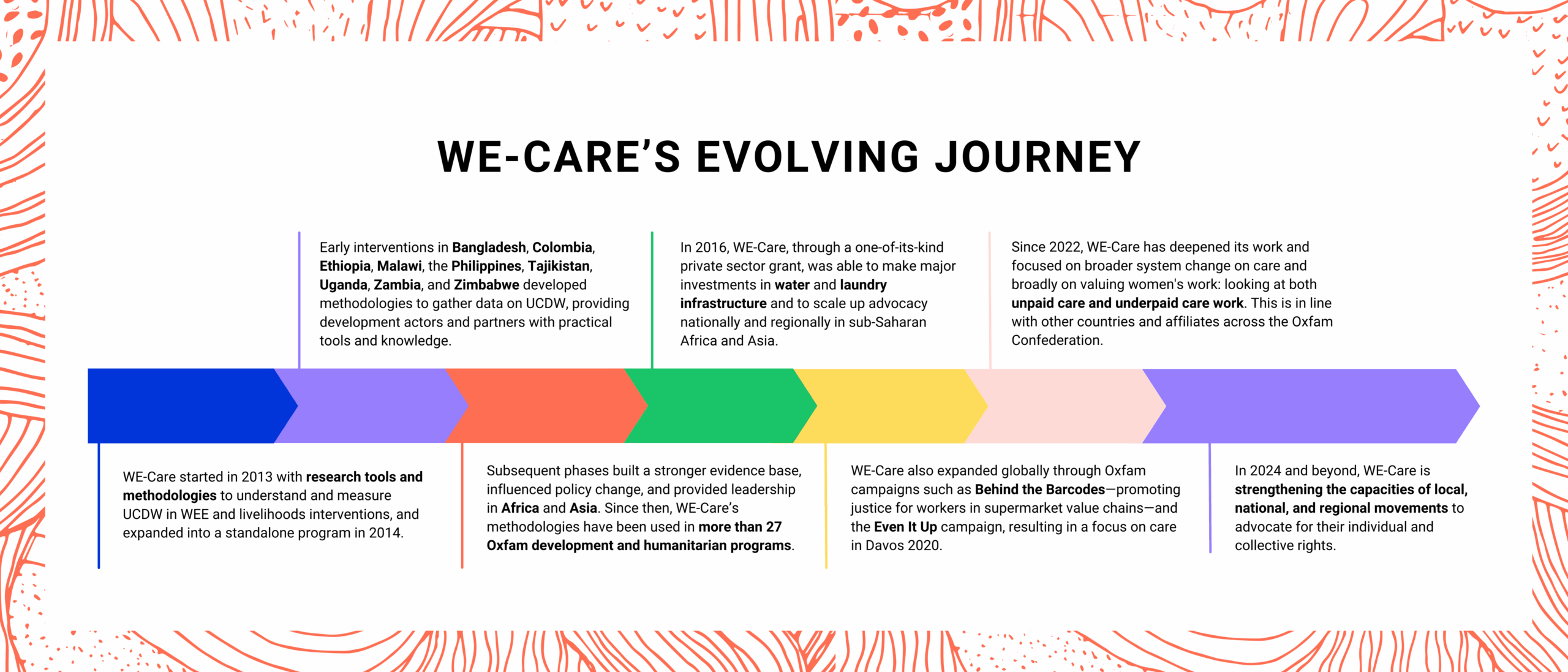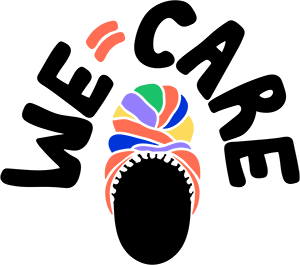Our Evolving Journey
Oxfam, together with partners and allies, has led the charge in over 25 countries since 2013 with the Women’s Economic Empowerment and Care (WE-Care) program. WE-Care tackles the heavy and unequal unpaid care and domestic work (UCDW) that disproportionally falls on women’s shoulders, stifling progress on gender equality.
The current trajectory is alarming: at the present rate of change, it could take more than 200 years to close the global economic gender gap. The way we value and distribute care work must change. WE-Care believes that we can no longer afford to wait.
The WE-Care initiative
In less than a decade, the WE-Care Initiative has reached several milestones, providing evidence of successful change and leadership in unpaid care programming, and challenging the myth that nothing can be done about unequal care work. Initially, small projects on UCDW were part of Oxfam’s larger programmes on markets, women’s leadership, and HIV/AIDS services. Interventions in Bangladesh, Colombia, Ethiopia, Malawi, the Philippines, Tajikistan, Uganda, Zambia, and Zimbabwe enabled WE-Care to develop methodologies for gathering data on unpaid care, providing development actors and partners with practical tools and knowledge for research and advocacy on UCDW and leading to positive change for women and girls at a local level.

Subsequent phases of the programme enabled WE-Care partners to build a stronger evidence base, influence policy change and provide leadership in Kenya, Tanzania, Ethiopia, Uganda and Zimbabwe, with the wider programme supporting projects in the Philippines and at a regional level in Africa. Outside WE-Care, its methodologies have been used in Oxfam development and humanitarian programs, including in the Philippines after Typhoon Haiyan in 2013, in Nepal after the 2015 earthquake, as well as in water projects in Colombia and markets and enterprise development programs in Honduras and Bangladesh.
Lasting change for women and girls
Our experience shows that addressing UCDW requires a combination of interventions to create lasting change for women and girls.
Over the years, we have distributed time- and labour-saving equipment (TLSE), such as water containers and improved stoves, raised awareness to shift social norms on care, and successfully advocated for investments in public infrastructure and services to reduce and redistribute heavy and unequal UCDW.
With our partners across the globe, we have promoted innovation, learning and sharing—finding out what works, disseminating good practice to strengthen influencing, and achieving policy change that transforms women and girls’ UCDW and promotes women’s economic empowerment.
